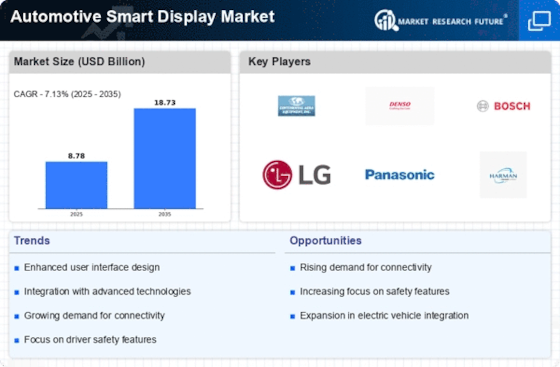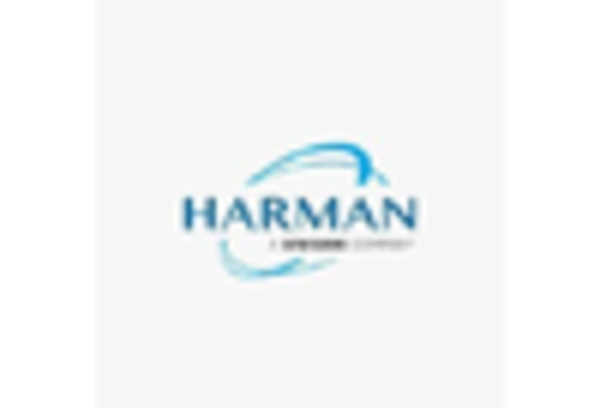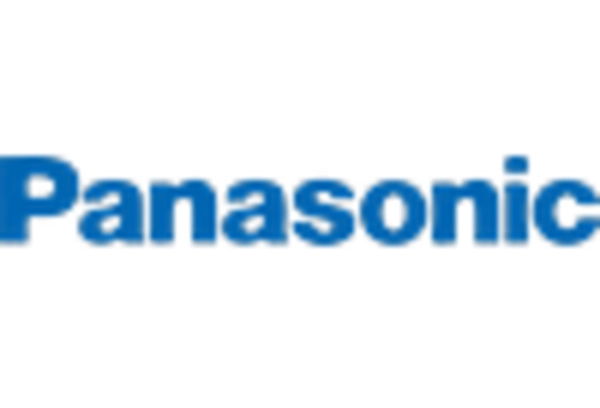Market Analysis
In-depth Analysis of Automotive Smart Display Market Industry Landscape
The clever automotive display marketplace has witnessed giant growth in recent years, driven by rapid improvements in the car era and the growing call for connected and sensible motors. Market dynamics inside this industry are shaped by different factors that affect the manufacturing, adoption, and innovation of car smart shows. One key motive force is the growing customer desire for more advantageous in-automobile infotainment structures, navigation capabilities, and connectivity options. As customers are seeking a seamless integration of smart technologies into their automobiles, automotive producers are more and more incorporating advanced clever displays to satisfy those expectancies. Moreover, the regulatory landscape and safety requirements play a pivotal function in shaping the market dynamics. The emphasis on driving force safety and the want to limit distractions have precipitated car producers to design clever displays that are intuitive and person-friendly. Government rules, together with suggestions on distracted use, have brought about the improvement of shows that prioritize fingers-unfastened operation and voice-controlled functionalities, fostering market growth. In addition to protection worries, the automobile industry is witnessing a shift towards electric-powered and independent vehicles. As electric-powered and autonomous motors become more mainstream, the call for classy, smart displays is anticipated to surge. These displays play an essential role in supplying actual-time facts on automobile performance, navigation, and energy intake. The integration of augmented reality (AR) presentations, in addition, complements the riding revel, offering features like heads-up shows (HUDs) that undertake crucial data without delay onto the windshield. Collaborations and partnerships among automotive producers, generation agencies, and display suppliers additionally contribute to the evolving dynamics of the car smart display marketplace. These collaborations allow for the change of knowledge and resources, fostering innovation in show generation. Companies are investing in research and improvement to create displays that aren't only technologically superior but additionally value-powerful, addressing the want for affordability in mass-market motors. In conclusion, the automotive smart display marketplace is characterized by dynamic factors that form its boom trajectory. The convergence of technological improvements, regulatory necessities, and shifting client possibilities are using the adoption of clever displays in cars. As the automotive enterprise continues to adapt towards electrification and autonomy, the position of clever shows in offering records, amusement, and safety functions will become more and more crucial, making it a pivotal thing of the modern-day car revel.


















Leave a Comment